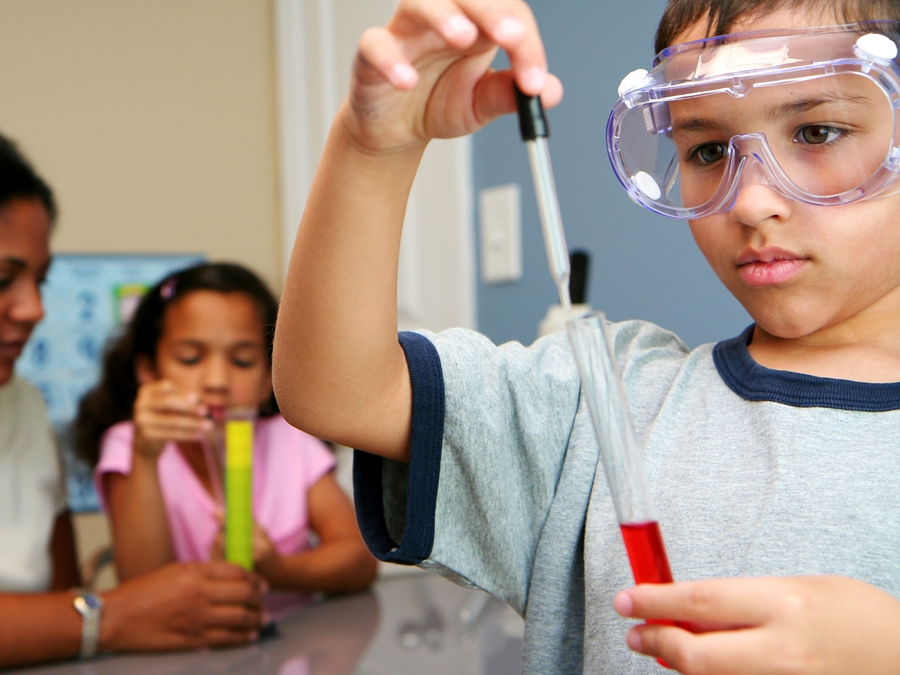In 2nd grade students continue to explore the world around them but they do so in a more rigorous way as they make more detailed observations and use and collect data to support their observations. Second graders use hands-on experimentation to develop questions, hypothesize, and make observations and conclusions. As in other grades, the specific topics studied in science vary according to state. However, common topics studied in 2nd grade include: earth and space; the human body; plants; the cycle of life; animals; and electricity and magnetism. Consult your child’s teacher or research your state’s science standards for more details.
In order to build science skills, your 2nd grader:
- Uses observation and experimentation to learn about her world. Asks scientific questions and finds the answers to her questions.
- Collects and uses data to support experiments and what she learns.
- Records her observations both through writing and talking and uses her observations to explain and make conclusions.
- Reads about different scientific concepts.
- Works in groups and as a class to conduct experiments and create projects.
Science Activities
- Compare Textures: Collect different textures from nature such as sticks, leaves, grass, stones, and bark. Your child can make a collage out of them, or you can blindfold your child and ask her to use her sense of touch to figure out what each item is.
- Use Your Senses: Go outside into nature and help your child take pictures, record videos, and draw and write about what she sees, hears, smells, and touches. Be sure to focus on one sense at a time. For example, have your child close her eyes and ask her to focus on what she hears. She can then create a poster, collage, or short book of what she learned and observed.
- Mix It Up: Let your child experiment and mix together different liquids. Add baking soda or baking powder. Have your child record her observations using text and illustrations and write down what she learned. Record differences and findings.
- Read and Report: Your child can pick a scientific topic she enjoys such as animals, space, or the human body. Research the topic together using books and the computer. Your child can then create a collage, short book, or informative text about the topic and present it to family members and friends.


